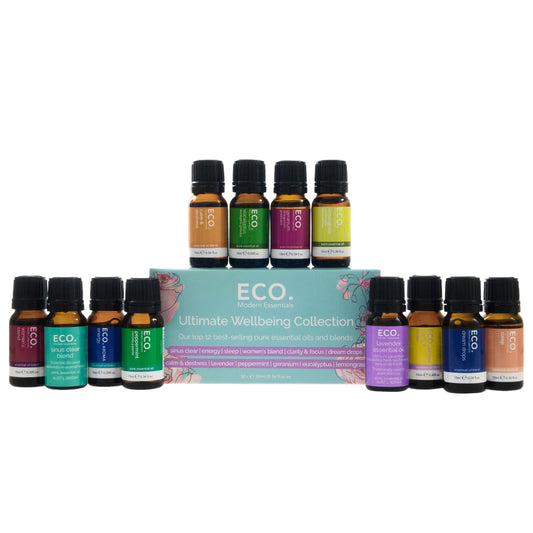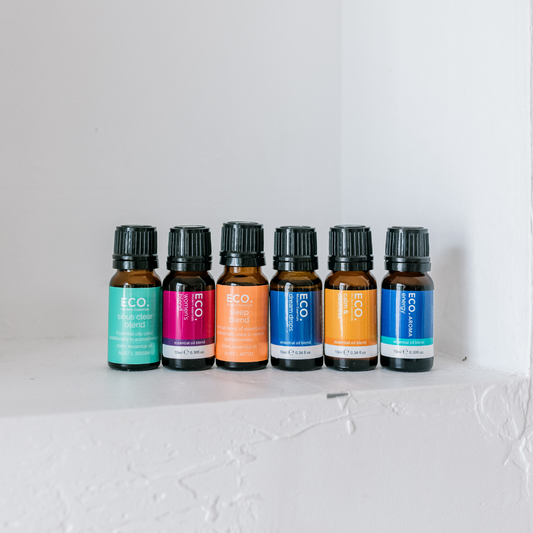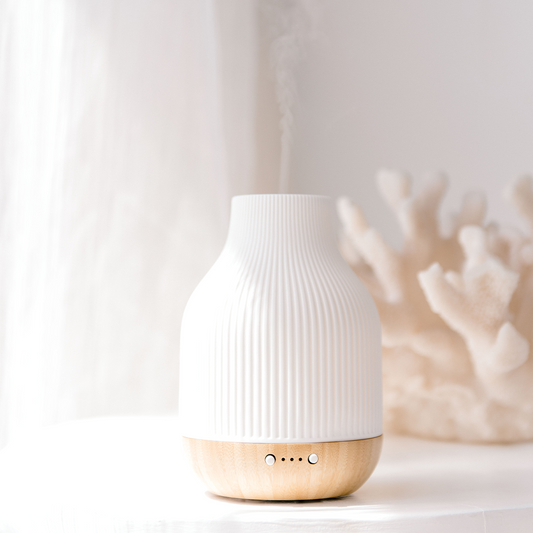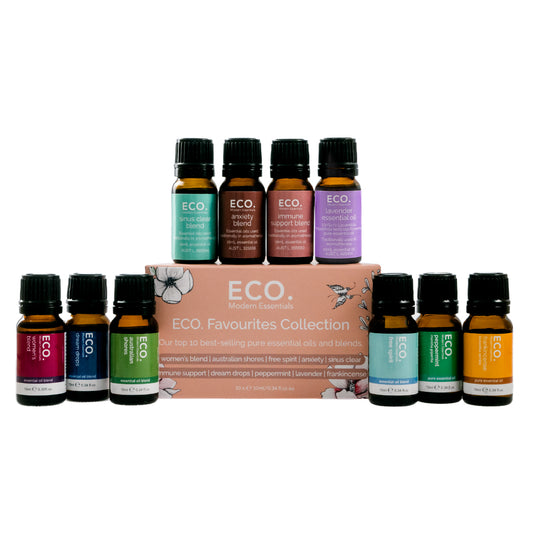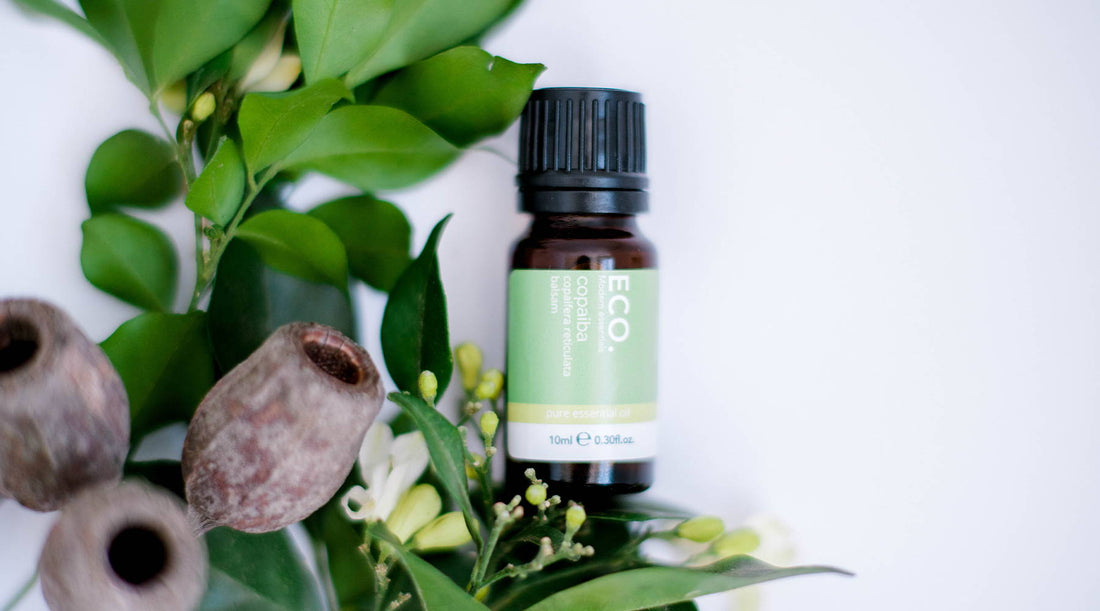
Benefits & Uses of Copaiba Essential Oil
Discover a treasured remedy from the medicinal traditions of the Amazon rainforest. Copaifera trees slowly and steadily extend their roots deep into the earth. Allow the unique aroma to draw your spirits into the calm and steady space that is your inner self.
Where is Copaiba essential oil from?
The Copaifera tree is native to South and Central America and grows across Bolivia, Peru, and Brazil. Our Copaiba essential oil is sourced from Brazil. Essential oil commonly comes from different species of the tree including Copaifera reticulata, officinalis and langsdorffii.
How is Copaiba essential oil made?
Copaiba essential oil is produced from the resin of the Copaifera tree. Other essential oils made from resin include Frankincense and Myrrh. Copaiba resin harvesting has a long, rich tradition and that practise continues today. A hole or bore is drilled into the trunk and the resin is collected. A tree can produce around 40 litres of resin each year and harvesting is done in a way to protect and preserve this precious resource. The resin is then steam distilled. The steam captures the medicinal aromatic compounds of the resin. This steam is then passed through cooling tubes where it returns to a liquid state. The essential oil and hydrosol are collected and bottled.
What does Copaiba tree look like?
Copaiba is a glorious evergreen tree that grows to about 30 to 40 meters tall. It spreads its branches wide and is a slow growing plant. The leaves are oval shaped, thick and glossy and the tree produces a fruit that is bright orange within a brown shell. The tree prefers a humid rainforest environment that doesn’t get too cold with sandy, well-drained soil.
What does Copaiba essential oil smell like?
Copaiba essential oil has a gentle woody aroma with a unique sweet balsamic undertone and notes of freshly cut foliage. A lovely deep tone that is warming and calming to the spirit.
History of Copaiba
Copaiba is a part of Amazon traditional medicine along with many other medicinal plants. Animals with open wounds rub themselves on the tree to heal their injuries. A skin infection common to South America, leishmaniasis, is transmitted by sandflies causing ulcers that are difficult to heal. There is well documented evidence of the use of Copaiba oil and resin to treat this debilitating condition in records as far back as the 15th century. Native Americans used Copaiba oil on wounds and the navel of newborns where the umbilical cord had been cut. Copaiba oil was traditionally used as an anti-inflammatory, wound healer and to treat respiratory disease. Today we continue to benefit from this medicinal plant.
The Copaifera tree is also used for its resin which is a lacquer or wood varnish and as a replacement for diesel oil. The beautiful lightweight wood has been used to make furniture. Copaiba essential oil is often used as a fragrance fixative in perfumes because it is slow to evaporate. The essential oil may replace Oak Moss as a fixative due to cost and lower chance of skin irritation.
Benefits & uses of Copaiba essential oil:
1. Wound Care: Research suggests that Copaiba may be used to treat insect bites, eczema, psoriasis and to slow bleeding. A traditional use of the oil was to heal wounds. Copaiba has good antibacterial and antifungal properties to keep open wounds clean. It is also reported to help reduce the appearance of scars.
2. Skin Care: The anti-inflammatory and antibacterial action of Copaiba essential oil make it useful to treat acne prone skin and is suitable for an oily complexion. In low dilutions it may help reduce skin redness.
3. Muscle Pain: Copaiba has an anti-inflammatory action that can reduce pain from sore muscles and arthritic joints. The essential oil is rich in sesquiterpenes; chemical compounds that are known anti-inflammatories.
4. Respiratory Complaints: Traditionally used to treat respiratory complaints. Copaiba may be useful in the management of sore throat, respiratory infections, mild asthma and hay fever.
5. Peaceful Spirit: Copaiba is a calming and grounding essential oil that may reduce symptoms of stress such as insomnia and racing thoughts.
How to use Copaiba essential oil
- Diffuser: Promote a warm and calm atmosphere by adding 6-8 drops of your Copaiba essential oil to a diffuser.
- Quick fix: To manage stress take a few deep inhalations from the bottle. A quick and easy treatment when you are at work, in the car, or anytime you need a quick break.
- Shower: Add 2-3 drops to a face washer and place in the corner of the shower to support the respiratory system.
- Bath: Add up to 5 drops in a dispersant such as oil, to the bath to help improve skin and aid in relaxation.
- Massage:Use a 2.5% dilution; up to 15 drops per 30ml of carrier oil for sore muscles.
- Steam Treatment:During colds or other respiratory conditions, add 2 drops of essential oil to a bowl of steaming hot water. Place your face close to the bowl and cover the back of your head and bowl with a towel to trap the aromatic vapours. Caution due to risk of burns or scalding and keep eyes covered during treatment.
- Blends well with: Black Pepper and most spice oils. Try blending with Cedarwood, Chamomile, Clove, Frankincense, Geranium, Ginger, Jasmine, Juniper Berry, Lavender, Lemon, Patchouli, Ylang Ylang and Pine.
Copaiba essential oil safety
Copaiba essential oil is considered a generally safe with no known contra indications. There are reports that the essential oil may cause skin irritation however this may be due to using Copaiba that has oxidized. Essential oils can oxidize if they are open for a long time, the lid isn’t on properly, or they are stored in a hot, bright environment.






